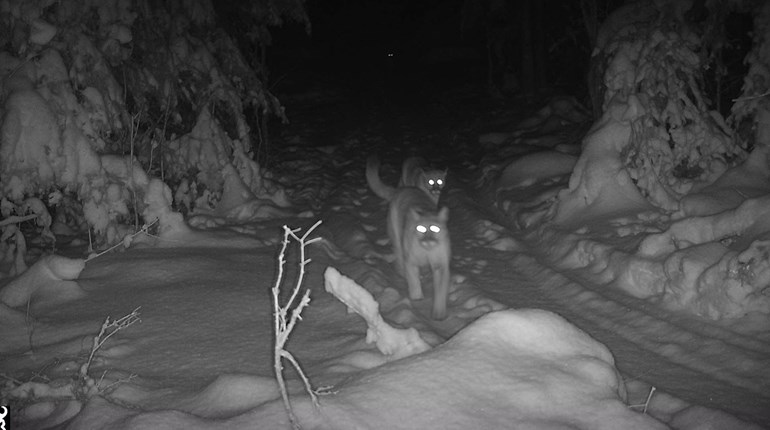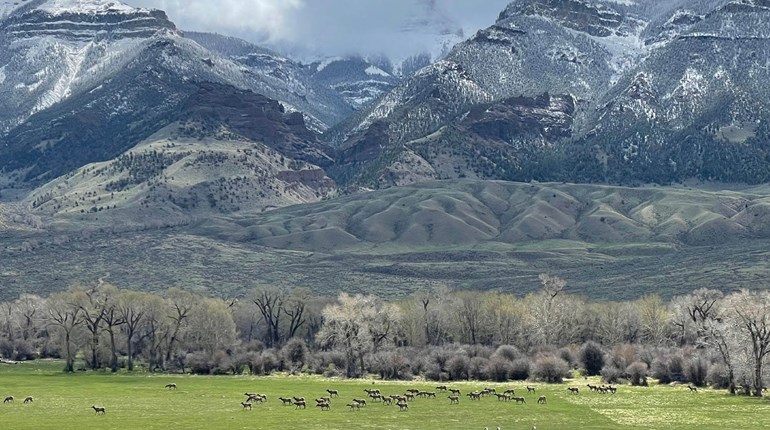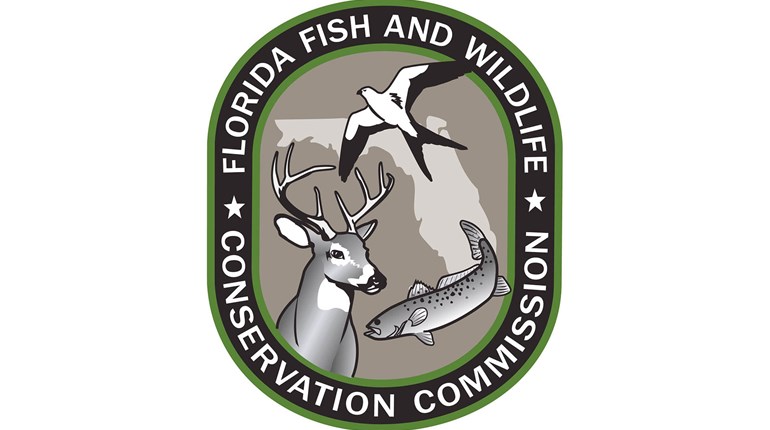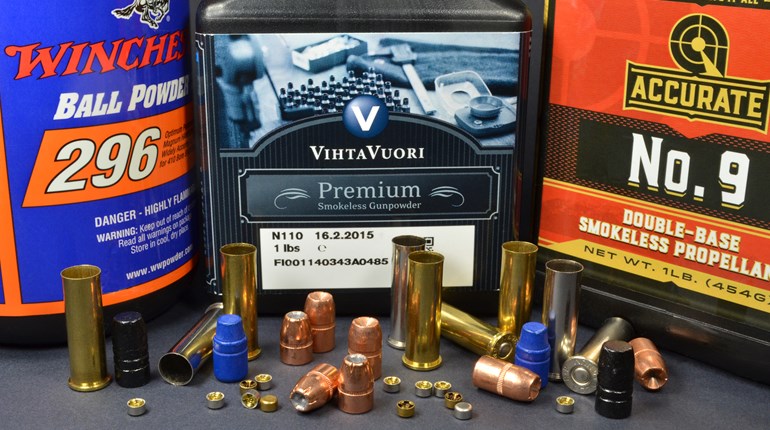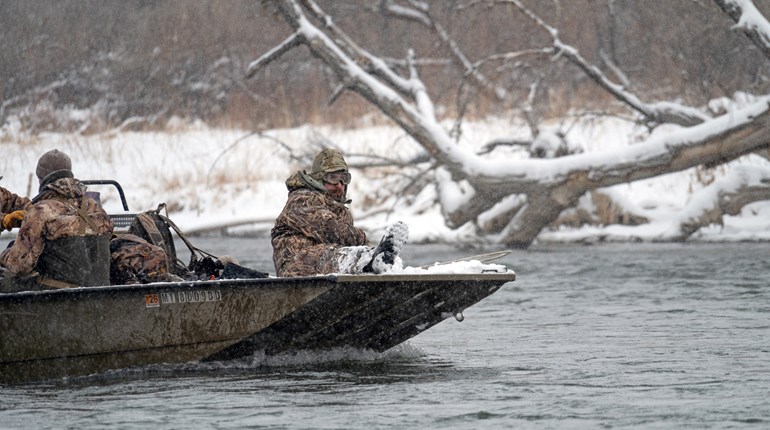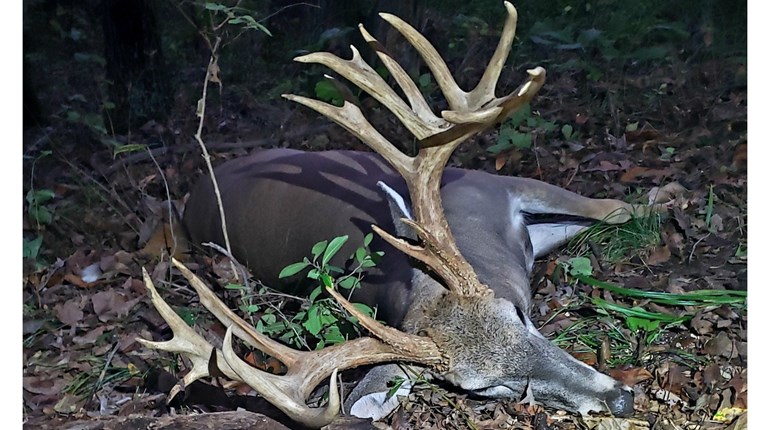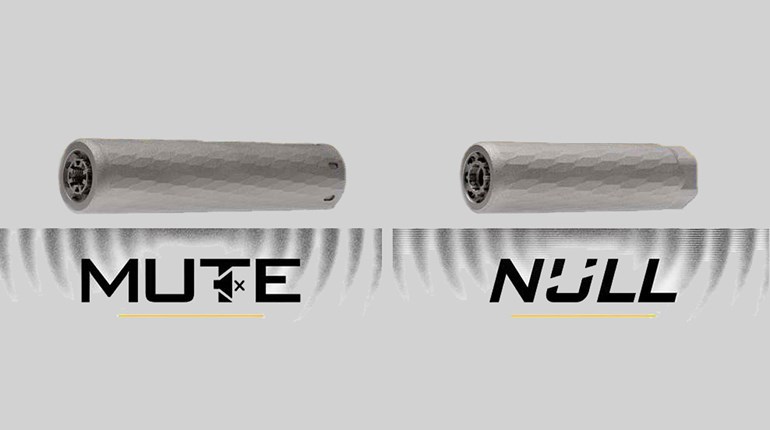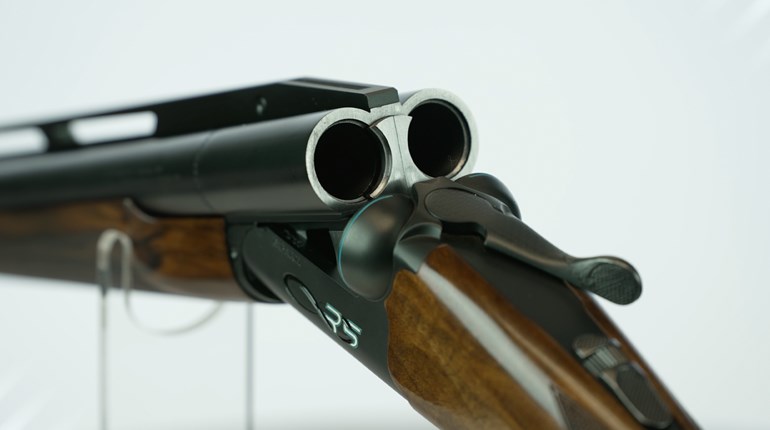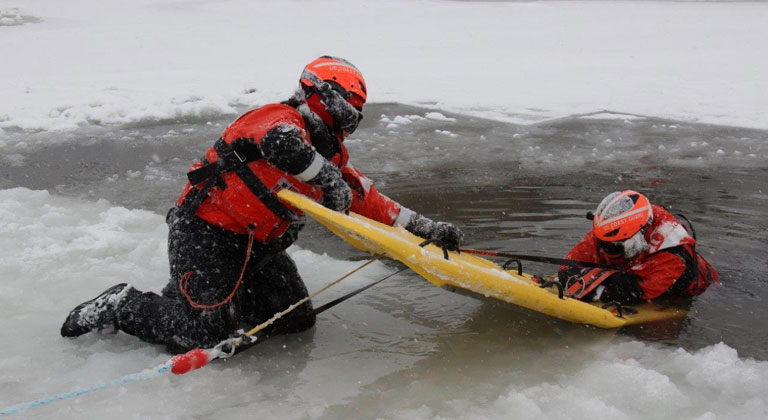
Chances are good that you already know quite well what hypothermia is: It’s when your body loses heat faster than it can raise it. You probably also know that hypothermia is a life-threatening condition, and that it’s something that all outdoorspeople need to be alert for during the winter months. Or is it? There are a number of things about hypothermia that just might be news to you ... starting with the fact that springtime can be just as dangerous as the winter, if not more.
1. It can happen even when it’s not all that cold.
You probably associate hypothermia with situations like Jack London’s “To Build a Fire”: Arctic temperatures, blinding snow and a fire that just won’t light. However, you can start rapidly losing heat even when it’s really only a bit chilly…40 degrees Fahrenheit and up. Being drenched in water or even sweat at these temperatures can cause your body to cool too quickly; so can lying down on cold surfaces such as concrete, rock or metal.
2. By the time you’re in trouble, you’re in too much trouble to know it.
As embarrassing as it is for me to admit this, I’m personally acquainted with this one. It was on my very first deer hunt, which took place during Nebraska’s December muzzleloader season…and the day after a major storm system had blown through, bringing Arctic temperatures to the area. With the wind chill factor, it was 20 below zero that morning. Despite my heavy layers of clothing, I started to shiver within an hour. But as a new hunter and the only woman in the party, I was determined not to be the one who threw in the towel first.
In retrospect, this was dumb. Very dumb.
You see, I’d known perfectly well that people suffering from moderate hypothermia—defined as 95 degrees Fahrenheit—are likely to experience confusion and impaired judgment. But my stubborn refusal to let the guide know that I was getting much too cold to be able to shoot effectively meant that by the time he noticed my blue lips and slurred speech, I was already mildly to moderately hypothermic. He cut the hunt short and insisted that I get into the truck to warm up. I nodded numbly, and then started walking towards the truck as he gathered up our gear and guns.
Or, at least, I thought I was walking towards the truck. In fact, I was wandering further and further away from the road (which was plainly visible just a few hundred yards away). Luckily, due to the snow, I left tracks and the guide was able to catch up to me. The scary part is that I had no concept that I was doing anything wrong. I felt cold, but otherwise alert and very much in control. But I wasn't.
The point is that by the time a person with hypothermia is getting into serious trouble, they’re not in any shape to recognize how much trouble they’re in, or how to help themselves.
3. People in end-stage hypothermia may take off their clothes and hide.
One of the oddest things you’ll hear from Search and Rescue personnel is that they frequently find victims of hypothermia burrowed into snow or hiding under things…and they often find them in the nude. There’s actually a name for both these phenomena: “terminal burrowing” and “paradoxical undressing,” and scientists have hypothesized the reasons for these strange behaviors.
The paradoxical undressing, it’s thought, is due to the final failure of the body’s attempt to keep the brain and vital organs warm. In early hypothermia, the body constricts blood vessels in the arms and legs to keep blood circulating in the vitals. But after a long time, the muscles that keep those vessels constricted finally fail, which results in a surge of warm blood back out to the extremities…making the victim feel as if they’re much, much too warm all of a sudden.
As for the terminal burrowing, the thinking is that because much of the victim’s higher consciousness is shutting down, their behaviors are reverting to hindbrain-driven instinct. Burrowing for warmth is something that animals will do instinctively, and it seems that in extremis human beings will do it, too. This means that if you’re looking for someone who may be suffering from hypothermia, you should remember that they may be “hiding” from you.
4. If you re-warm someone with hypothermia the wrong way, they could die.
This is another side effect of the body’s attempt to fight hypothermia by limiting blood flow to the extremities. You see, if you attempt to warm their extremities up first, those constricted blood vessels can open up, releasing cold and lactic-acid-rich blood back to the vital organs…which can cause a sudden and dangerous drop in core temperature. This can result in a heart attack. If you’re trying to help a person who’s gone into moderate to severe hypothermia, the best thing to do is always going to be calling 911 and letting trained medical personnel help. If that’s not possible, re-warm them by warming their core first.
Lead image courtesy U.S. Coast Guard













